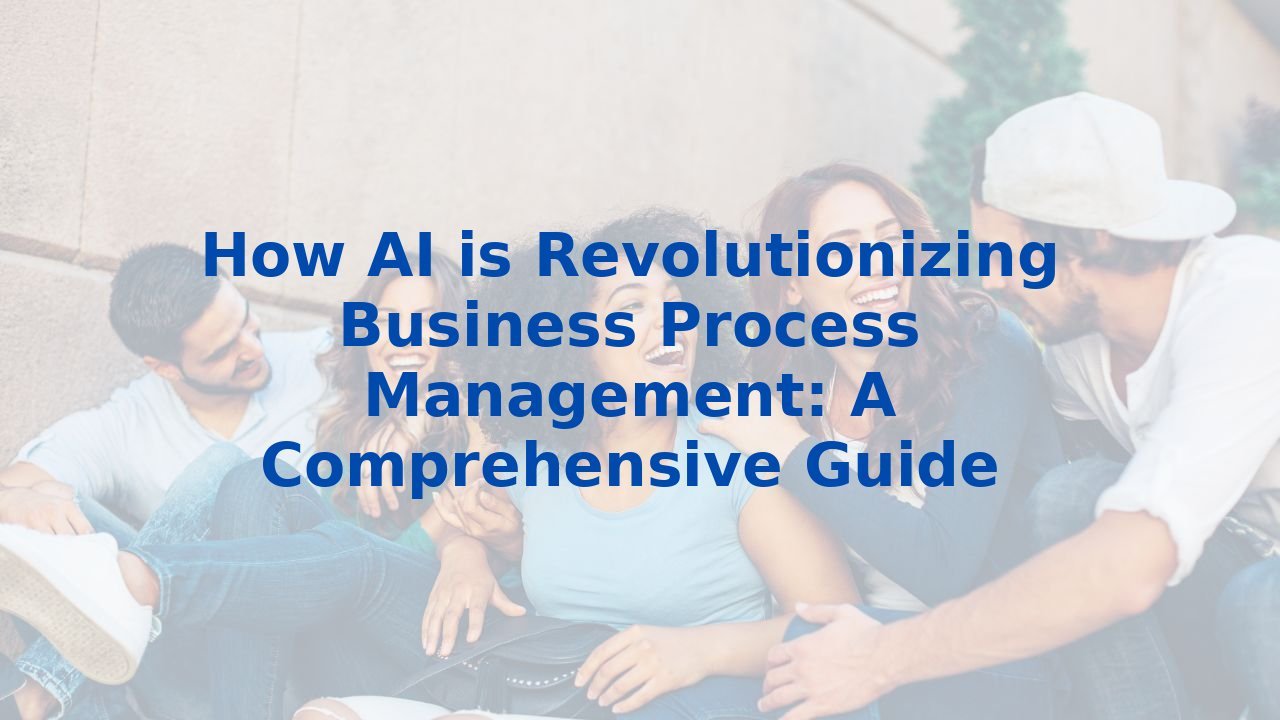How AI is Revolutionizing Business Process Management: A Comprehensive Guide
How AI is Revolutionizing Business Process Management: A Comprehensive Guide
Introduction
In a world that never stops moving, businesses find themselves at a crossroads of tradition and transformation. As we navigate this rapidly changing landscape, efficiency and productivity become non-negotiable elements for survival. Enter Artificial Intelligence (AI), a groundbreaking force reshaping Business Process Management (BPM) to elevate operational performance. This guide will take you through the key business processes enhanced by AI, and the remarkable benefits it can bring to your organization.
What is Business Process Management?
At its core, Business Process Management (BPM) is a systematic approach to optimizing an organization’s processes. Traditionally, BPM relied on manual interventions—think tedious paperwork and human error, which often turned out to be time-consuming and costly. The advent of AI has altered this landscape dramatically, but how exactly does it work?
How AI Enhances Business Processes
AI isn't simply an add-on; it has redefined BPM by automating and optimizing various facets of business operations. Here are the key areas where AI shines:
1. Data Analysis and Insights
One of AI’s most compelling abilities is its capacity for data analysis. Imagine having the power to sift through mountains of data to unveil trends, predict outcomes, and identify root causes almost instantaneously. This data-driven approach empowers organizations to make informed decisions, shaping strategies that are grounded in reality rather than guesswork.
2. Process Building and Automation
AI excels in constructing efficient processes and workflows based on historical data and user-defined parameters. By automating repetitive tasks, it minimizes the potential for human error and frees employees from mundane responsibilities. This means your teams can now focus on higher-value activities that drive innovation and creativity.
3. Process Optimization
With machine learning at its helm, AI redefines process optimization. No longer constrained by static methodologies, organizations can now simulate various scenarios to understand the impact of changes on key performance indicators (KPIs), leading to smarter resource allocation and streamlined operations.
4. Enhanced User Experience
AI has transformed user interfaces in BPM software, democratizing technology for all employees, regardless of their technical prowess. This intuitive design minimizes the learning curve and fosters swift adaptation to new processes, essentially making technology an ally rather than a hindrance.
5. Continuous Improvement
AI is not a one-and-done solution. It paves the way for continuous improvement by generating ongoing feedback and data-driven recommendations. Organizations can achieve sustained growth by deploying AI-driven feedback loops that iteratively optimize processes over time.
Benefits of AI in Business Processes
Incorporating AI into BPM manifests a spectrum of benefits:
- Improved Efficiency: Automation of repetitive tasks translates to quicker results and higher-quality outputs.
- Enhanced Decision-Making: AI’s predictive analytics equip leaders with insights born from data patterns, facilitating better strategic planning.
- Reduced Errors: By taking the human element out of repetitive tasks, the margin for error decreases exponentially.
- Increased Productivity: Employees are liberated from mundane tasks, enabling them to channel their skills into areas that matter most.
The Role of Employee Training in AI Integration
While AI is indeed a powerful ally, its true potential can only be unlocked when employees are adequately trained. Here’s why investing in AI training is imperative:
- Adaptability: Well-trained employees can rapidly acclimate to AI-driven tools, facilitating a smoother transition during tech upgrades.
- Optimal Utilization: Training ensures that everyone understands how to leverage AI capabilities, maximizing the technology’s benefits.
- Enhanced Collaboration: A workforce equipped with AI skills fosters improved collaboration, leading to more effective workflows.
Conclusion
The integration of AI into Business Process Management is more than just a trend; it's a transformative force reshaping how organizations operate. With AI's ability to automate, optimize, and analyze, businesses can bolster efficiency, enhance decision-making, and significantly reduce errors. However, this technological leap requires an equally strong focus on employee training to fully harness the advantages AI brings. As we look ahead, it's clear that embracing AI is not just beneficial, it's essential for sustained success in a competitive marketplace.



